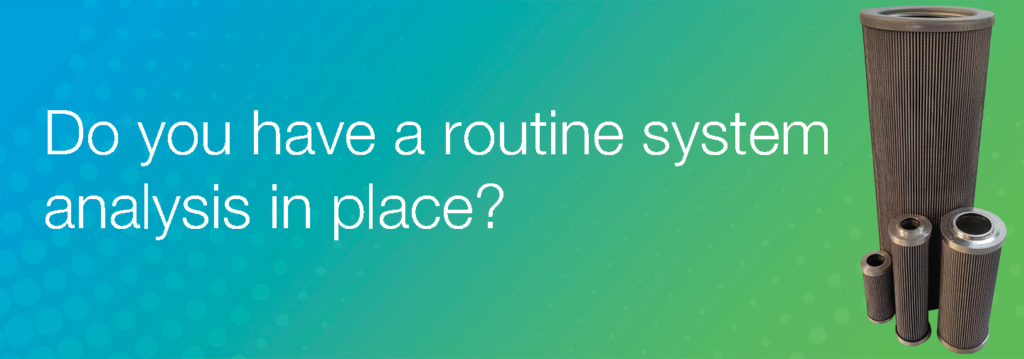
The failure of an oil filter can sometimes go undetected until big problems present themselves. Each type of failure has a distinct failure mechanism and method of detection, but most of the issues can be detected and prevented through routine system analysis.
Ensuring that your equipment is outfitted with high-quality filters also goes a long way towards preventing filter failure. Here are the four most common filter failures and how to prevent them.
Filters are at risk of plugging when oil circulates in a system for too long without change or inspection. As oil degrades through processes like oxidation, failure products such as carbon sludge and varnish appear; these products can cover a filter, restricting oil flow.
It may not be detectable through oil analysis, but an increased pressure differential across the filter is a tell-tale sign of plugging. Plugging can be prevented and solved through the routine changing of oil and filters.
Also known as media pore erosion, channeling occurs when particles become lodged in the pores of a filter. These particles get forced through the filter pores, which then become permanently enlarged. When a weave or screen is bombarded by high-speed abrasive particles like sand and wear-metal, channeling can be exacerbated.
Channeling can be identified through a particle count test. In the event of channeling, the particle test will show an upward trend in the number of large particles present in the oil. Channeling can be prevented by regularly inspecting and changing a system’s gaskets and seals.
Fatigue cracking, or media matrix deformation, occurs when operational stresses, like high pressure and violent cycle shifts, warp a filter’s weave. The deformation of a filter’s media can force oil flow to bypass the filter, allowing contamination to circumvent capture; this results in an increased particle count within the oil. Like other forms of filter failure, fatigue cracking is best detected by a particle count test.
Filters can be reinforced against high pressure through the implementation of metal screens. Fatigue cracking can also be solved by moving the filter away from high pressures.
Also called media mixture rupture, media migration is the worst type of filter failure; it can be difficult to detect immediately and can cause significant damage to downstream components. Media migration occurs when high pressure or high transient flow damages and ruptures a filter. Unlike fatigue cracking, where the oil bypasses warped filter media, media migration allows oil to flow through the damaged filter. Not only will the damaged filter fail to capture contaminant particles, but as the oil flows through the impaired media, it collects pieces of the ruptured material, causing further contamination. Additionally, media migration can cause the release of contaminants previously captured by the filter.
Media migration can be identified by a drop in pressure across the filter and an increase in the oil’s total particle count. Accordingly, media migration can be detected by daily inspections of a system, wherein pressure and flow rates are checked. Regular oil analysis, combined with the routine replacement of oil and filters, can prevent media migration.
Oil filters can fail for several different reasons; staying on top of routine inspections can prevent filter failure and allow failed filters to be replaced before significant damage is caused. Preventing filter problems is just one of the many reasons why it is essential to implement regular system analysis into your routine.